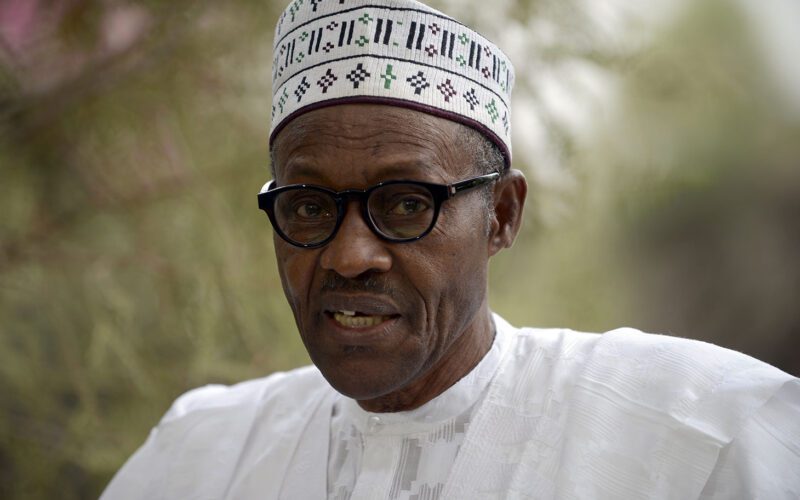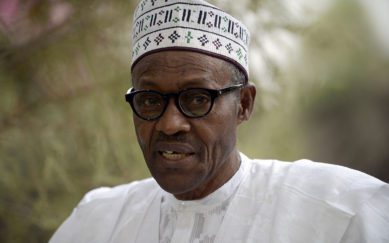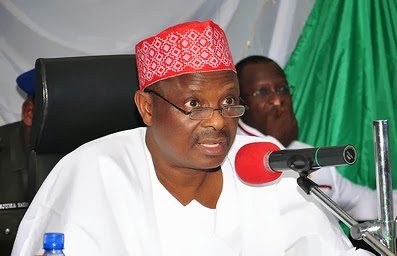National Issues
Buhari and the University Councils -By Adagbo Onoja

Yesterday, (August 2nd, 2015), the Federal Government came out with a statement exempting university councils from the dissolution of boards of all extra ministerial agencies. One’s initial reflections when the university councils were not mentioned or exempted when all the boards were dissolved was that this government must have decided to count itself out of the agreement which made the case for university councils to exhaust their tenure unless something outrageous happened along the line. Coming from the Academic Staff Union of Universities, (ASUU), there must be a strategic logic in favour of the larger society in such an argument. It is on the basis of such an assumption that one sees a good omen in the FG’s statement yesterday in terms of FG-ASUU relations. For, the government could have equally argued that an agreement is not a law and that it is not bound by it. We have had that sort of situation before and this reversal is, therefore, something commendable.
However, we must proceed to interrogate the idea of university councils at this point in time. For, the truth is that, for sometimes now, the question has been: When President Buhari eventually constitutes a cabinet, appoint ambassadors, members and chairpersons of boards of extra-ministerial agencies, would that master list also contain university councils? In other words, was the regime of ‘change’ going to tolerate or severely amend or completely sweep away the ‘university council’ regime as we have experienced it in Nigeria in recent times?
I argue that this is still an important question to pose at this point in time because the university system nestles at the heart of the trouble with Nigeria, however one conceptualises trouble. If we had universities, we would probably not have the version of Boko Haram we have had. We might still have had one variant or another of that sort of problem but most likely in a different and less complicated form than the Boko Haram we have encountered. In other words, the university system is the first place for the president to look at especially as security is one of his priorities. The logic here is that our children will come for us one way or the other if we do not educate them properly because they can only operate within the boundaries of what they know. It is possible to avert this. One way of doing that is to shield the university system from budgetary fluctuations as well as the siege mentality or crassness which has enveloped the larger society. A major step in that direction is either by severely amending the practice of university councils or doing away with it entirely within the context of a change process by which the country can be repositioned in a more fundamental way than has been glibly talked about so far. It helps if this particular aspect is personally supervised by the president.
If the members of university councils were going to follow the exemplary approaches personified by Gamaliel Onosode, Aisha Babangida or Ango Abdullahi, if we must mention names, that would have been okay. But that is not the case. In more than 98% of the councils, the drain on university resources is unspeakable in terms of the sundry commitment universities are compelled to provide for chairpersons or members of council. My contemporaries in the student movement of yesteryears would be shocked to see Professor Ango Abdullahi’s name on a list of exemplars in this regard just as they would most likely be surprised to learn that Aisha Babangida did very well as a council member of some university years back. It speaks to the contingency and fluidity of ‘reality’. No one would have forgotten ‘Ango Must Go’ drama in Nigeria’s history too soon but I can also not fail to reckon that if he didn’t put his foot down recently in a university related assignment, society would have been a woeful loser. Looking back too, it makes sound sociological analysis to infer that there might not have been the kind of security challenge in the North East today if the Nigerian State had been as perceptive as Abdullahi in that wise. That is, however, an issue that is best left at that.
But an even more fundamental problem with our practice of university councils is loading it with people who have absolutely nothing to contribute to a university or the university system. By contribution, I do not mean anything academic. After all, the idea of a university council is more about university-society nexus rather than essentially academic. There are certainly some traditional/community, religious, and even business leaders whose membership of any council automatically amounts to a big blessing. But in a country where a fresh PhD holder would start with one of the national newspapers in responding to a question asking him to name a few leading authorities in his field, any concept can be amended, edited or re-defined. Concepts do not have static meanings. So, why do we need bloated university councils, majority of whom have tastes and idiosyncrasies antithetical to the very idea of a university and at a particularly difficult time for the country like now?
I am afraid, the president might have spent more time looking for the most suitable materials to go to ministries such as finance, petroleum, FCT, foreign affairs and the likes. Of course, these are important realms of governance. But the one position he can be granted even up to December 2015 to find the most informed, skilful and critical enough person to head MUST be the Minister of Education. That is the minister whose ministry I doubt that Joda’s report has given the president anything even up to the tip of the iceberg in terms of the challenges buried there. I am not talking of corruption. I am talking of some non-descript, little things that, however, makes the university system thick in relation to service to the society. In that regard, we are at a very appalling level that only very few people like Mallam Y.Z Y’au and Asisi Asobie have, in recent times, been able to give a precise idea of the degree. Many Nigerians have no idea of the depth of the decay in university culture in the country. The few that do have sent out their children to other countries. The many that do not or do but haven’t got the resources to send out their children have to take what is available. But everyone, including the world out there, is waiting, praying and hoping that the impending Minister of Education would be that very unusual Nigerian who, under presidential cover, can speedily achieve change of tectonic magnitude via-a-vis the current educational situation in Nigeria, especially as it affects the universities and how university councils compound it.
Someone might ask about what sort of universities we are talking of and why the emphasis on the universities but not on primary schools. Taking the first part first, I would say the answer is simple: several decades back, a student from a peasant family from the remotest corner of the provinces would surface as a first year student at say, Ahmadu Bello University, Zaria or Obafemi Awolowo University, Ile-Ife. By the time s/he is in the third year, s/he has transformed to a point where s/he can stand on the podium anywhere in the world, take a position and defend it. Everyone would not agree with him or her but no one would fail to note that there is an argument on the floor. The import is that when s/he graduates and gets into the federal or state or local government bureaucracy, police, judiciary, armed forces, diplomacy or whatever, s/he can hold her ground in a qualitative manner because s/he has been trained or groomed in the capacity to problematise, conceptualise, research and think on his or her foot. So, s/he knows what challenges are and how best to address one in the best interest of the system. This is not what we have today when PhD holders do not know what an authority in an academic field refers to. It is frightening.
So frightening that, not long ago, the country was aghast when a radical Professor of Political Science declared in an interview with The Punch that if he had the resources, he would not allow his children to attend Nigerian universities. Of course, the country was aghast but for the wrong reason since that was the same thing Chief Awolowo said in the 1980 when reporters quizzed him on why he was not flying Nigeria Airways. Describing the question as rude, he said he bought the best whenever he went to the market. From the benefit of hindsight, he might have sensed the onset of this peculiarly Nigerian attitude that a plane can be managed in the air. We all know where that landed the country in terms of distressful aviation disasters in the last two decades. Again, the logic here is that escapism is not an answer. Don’t start invoking or demanding nationalism from citizens when the state fails in such a very spectacular manner to meet up. The answer is to meet up. In the case of the universities, meeting up ought not to have been such a puzzle.
It has been a puzzle because, like in all other things, the Nigerian State simply lacked the clarity on how to go about it. It wouldn’t have been if when the government was faced with a challenge that the ABU, Zaria School of History or the Department of Economics at the University of Ibadan or the Engineering Faculty at one of ex-President Jonathan’s universities could best handle, it called that university or Department to look into the challenge and give it the plausible options. And this had happened in a way before when, for instance, the late Mahmud Tukur, i. e the former President of Academic Staff Union of Universities, (ASUU) wrote a minority report on the problem of what to do with State Owned Enterprises (SOEs) in 1984 which the government at that time found to be better than the main report. If that approach had been implemented, Nigeria would, by now, have multinational corporations with excellent mastery of the intricacies of international business and we might not have been opting for a ‘rapid-result’ approach in forming Transcorps two decades or so later.
This is why universities elsewhere are ‘profitable’ because not only the government but also oil companies or big business, in short as well as the military establishment, the service sector, among others, take their puzzles to the universities to research for answers for a fee. Nigerian universities are financially handicapped in an extraordinary manner because that is not happening in Nigeria. It is not happening for three reasons. The government is compelled to look for the answers to its puzzles from the IMF and the World Bank even though the IMF and the World Bank have no good idea of Nigeria beyond their discursive data. Two, by the manner we have pursued deregulation in Nigeria, the country has already robbed itself of the benefits of own transnational corporations that would have been consulting the universities and paying for such researches. Three, the outcome of one and two is a university system that is so humbled as to even contemplate asserting itself beyond the exertions of ASUU. But how many people even understand the argument ASUU is making? Even within ASUU, many do not get the point beyond the salary increase component. So, the country suffers in terms of a thinking core that is not constrained by the vagaries of politics and power.
It is, indeed, a miracle that we have survived. For, up to the Second Republic, there were no political parties that formed governments in Nigeria that didn’t have own intellectuals. In the First Republic, if you take the NEPU to which I am biased, it had the Ahmadu Jalingos and Dandatti Abdulkadirs, among many others. I am not sure about this but I think it was Aminu Kano who sent the late Professor Ahmadu Jalingo to Oxford and the University of Edinburgh through his connections with the British labour establishment, showing the extent to which real parties went to produce their own intellectuals. In the Second Republic, the PRP, NEPU’s successor, had a coterie of scholars symbolised by the Bala Usmans, Bala Mohammeds and the Uche Chukwumerijes, all late now. This was also the case with both the Action Group and the Unity Party of Nigeria, (UPN) whose best intellectual symbol must be the truly knowledgeable Professor Sam Aluko. The National Party of Nigeria, (NPN) had the Adamu Ciromas, Chuba Okadigbos and Suleiman Takumas. These three even wrote a book titled, The Mission of the NPN. All these contrast with the crisis today whereby parties have no intellectuals through whom everyone can see the party come alive in their choice of words, imageries and binaries when they take the floor anywhere.
The PDP which started very well in this regard to the extent that set up a party school regressed into a caricature of intellectualised party politics with its over-population by tin-gods and hook up to mindless prebendalism while the few intellectuals in the APC are so divided that there is clearly no core there yet. This is what one concludes from a recent clash, for example, between a party mandarin like Audu Ogbeh who though got it absolutely right by brilliantly framing the problem in terms of a power elite without a consensus on national development strategy and the imperative for a developmental state (See The Punch, June 28, 2015) was, nevertheless, challenged by the energetic but self-possessed Pat Utomi, for example, who argued for removal of fuel subsidy, citing examples that just do not add up. What a party!
The biggest of the problems of meeting up would always be that of presidential power. Now, it can be said that Nigeria has got that right at the moment in the sense that Buhari is not into cuwa-cuwa, mago-mago or transactional leadership. But Buhari is a president and most presidents are actually in jail. In other words, the problems are down stairs where, as Nigerians have it, a lot of the bad, bad things happen, far away from the radius of presidential eyes and ears. Except IBB, through his assembly of scholars in the cabinet and the Presidential Advisory Council, (PAC) and Umaru Yar’Adua who insisted on a back-channel meeting with ASUU, very few Nigerian leaders overcome this. And that must be a major reason why they can rarely figure out, for example, that there is now a contradiction between the concept of university councils and the universities. Answer: experiment with a university system without councils for some time and let’s see where that takes us.
This is without prejudice to yesterday’s exemption or any major program of reform that the government might already be putting in place, embracing the entire university system, irrespective of ownership, particularly on the very urgent task: Grabbing all the members of the outgoing generation of Nigerian scholars to re-write a ‘Research Methodology’ module or Course Unit in which ‘Philosophy of Science’ would be dominant. And encompassing how the teaching of that aspect in particular would be brought down from Heaven to earth for every students in every Nigerian university. In the humanities, for example, one can think of names to be fished out to include the Asobies, Dlakwas, Ibrahim Gambaris, Paul Izahs, Isawa Elaigus, Okey Ibeanus, Eghosa Osaghaes, Ibrahim Bello Kanos, Shola Olorunyomis, Jibrin Ibrahims, Ayo Olukotuns, Y.Z Y’aus, Abu Momohs, Etanibi Alemikas, Okello Oculis, Ogo Alubos (just to mention those I can remember immediately as there are many brilliant younger methodology guys in the system about whom I might be ignorant) to produce such a module outline for the entire system. One wouldn’t also not know the great methodology names in the sciences complex or Engineering, Architecture, Medicine, Veterinary Medicine and so on. But, without doing something about ‘Research Methodology’ which would enable our students to domesticate the ‘Philosophy of Science’ component there, we would substantially be wasting our time as far as producing graduates who can help themselves critically rather than as cultural zombies, not to talk of thinking strategically for the society. When they master that much, then they can ‘complete’ the rest in the real world since universities do not have monopoly of knowledge. It is a mystery that the much talked about NUC Accreditation wager is not about this.
Written by Adagbo Onoja (adagboonoja@gmail.com)




















